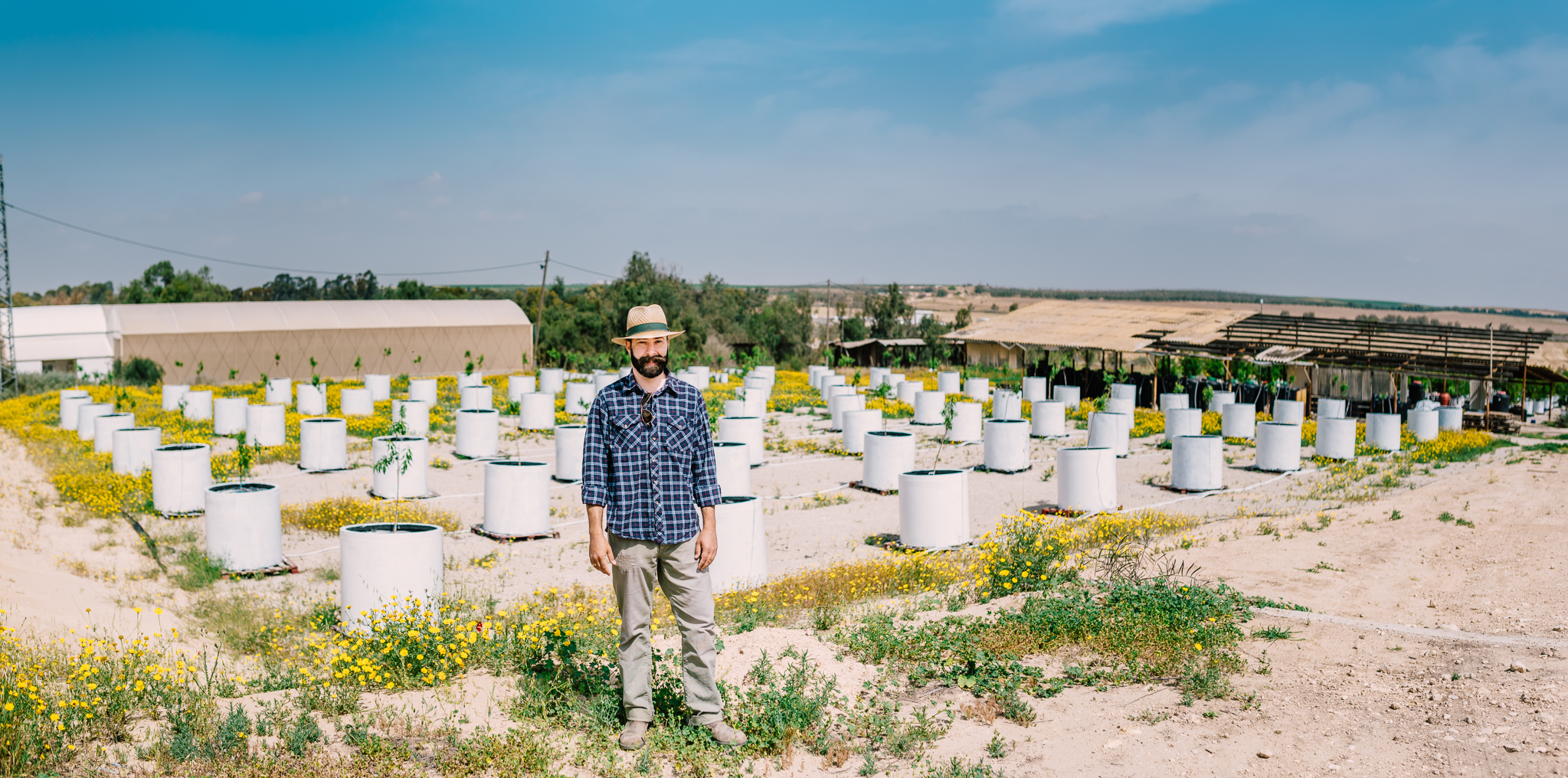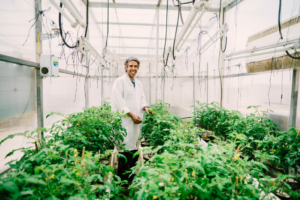
Since Israel’s earliest days and even before it was established, agriculture has been crucially important. A dry region with little water, Israel needed innovative solutions to successfully produce its own food.
To believe we can supply food with this land was a dream… Now, we are one of the global leaders in agricultural technology.
— Danielle Abraham, International Friends of Volcani
Thanks in large part to the groundbreaking work of the Volcani Center, Israel now serves as a leader for sustainable agriculture around the globe. Volcani was founded in 1921 to grow food in a land area not naturally conducive to most agriculture. Today, Volcani is successfully supporting Israelis’ health and food security by allowing the practice of farming to flourish in even the hottest deserts of Israel.
“To believe we can supply food with this land was a dream,” says Danielle Abraham, director of the International Friends of Volcani. “To undertake agriculture successfully, a country needs four key resources: water, land, human resources, and export markets. With none of these resources readily available, Israel was forced to invest in research to ensure agricultural success. Now, we are one of the global leaders in agricultural technology, and our produce is very good.”
In 2015, a grant from Helmsley’s Israel Program expanded Volcani’s Gilat Center for Arid Area Agriculture in the northern Negev desert region. The specialized center began working hand in hand with the Negev farming community to understand the issues they face, while advancing cutting-edge research to address the agricultural challenges of Israel and arid areas all over the world.
“It was really the Helmsley support that helped us attract leading scientists from all over the world and create a collaborative environment to do innovative research,” says Dr. Uri Yermiyahu, director of the Gilat Center. “In less than three years, we have greatly increased our capacity and in turn, the impact of our work.”
To enhance impact, the Gilat Center began driving a more global reach by spreading its knowledge of arid farming and convening government officials, UN representatives, and agricultural leaders who seek to learn the latest innovations in sustainable agriculture. The team leads capacity-building courses for global audiences and hosts many international doctorate and post-doc students to complete their research on-site. Dr. Yermiyahu recalls a recent workshop with farmers in California who continue to look for new ways to address water shortages: “It has been incredible to empower countries facing similar problems by sharing our solutions.”
Since then, Volcani researchers have continued developing tools to help farmers overcome heat and minimize crop losses, grow high-quality produce in protected greenhouses, and increase water-use efficiency – ultimately leading to a prestigious UNESCO International Prize for Research in the Life Sciences in 2017. Recent Helmsley funding has led to the development of Volcani’s first Model Farm, a “life-sized,” 120-acre farm designed to showcase the environmental benefits of sustainable agriculture and demonstrate the economic viability of such innovations. The Model Farm is translating laboratory research to a working farm setting and providing a hands-on learning environment for farmers and researchers alike.
In 2021, the Volcani team will begin exploring new uses of technology with a Helmsley grant that hopes to identify opportunities for artificial intelligence to help improve environmental sustainability and food security. Volcani will establish a world-class center with state-of-the-art advanced computing equipment to bridge the gaps between the disciplines of AI and agriculture. The dedicated facility will be the first of its kind in Israel and among very few globally.
Volcani is tackling challenges that affect everyone – a growing population, water shortages, and climate change. With so many shared concerns for these mounting issues, Israel’s innovations are in great demand as people around the world pursue new ways to produce food while protecting the environment for generations to come.